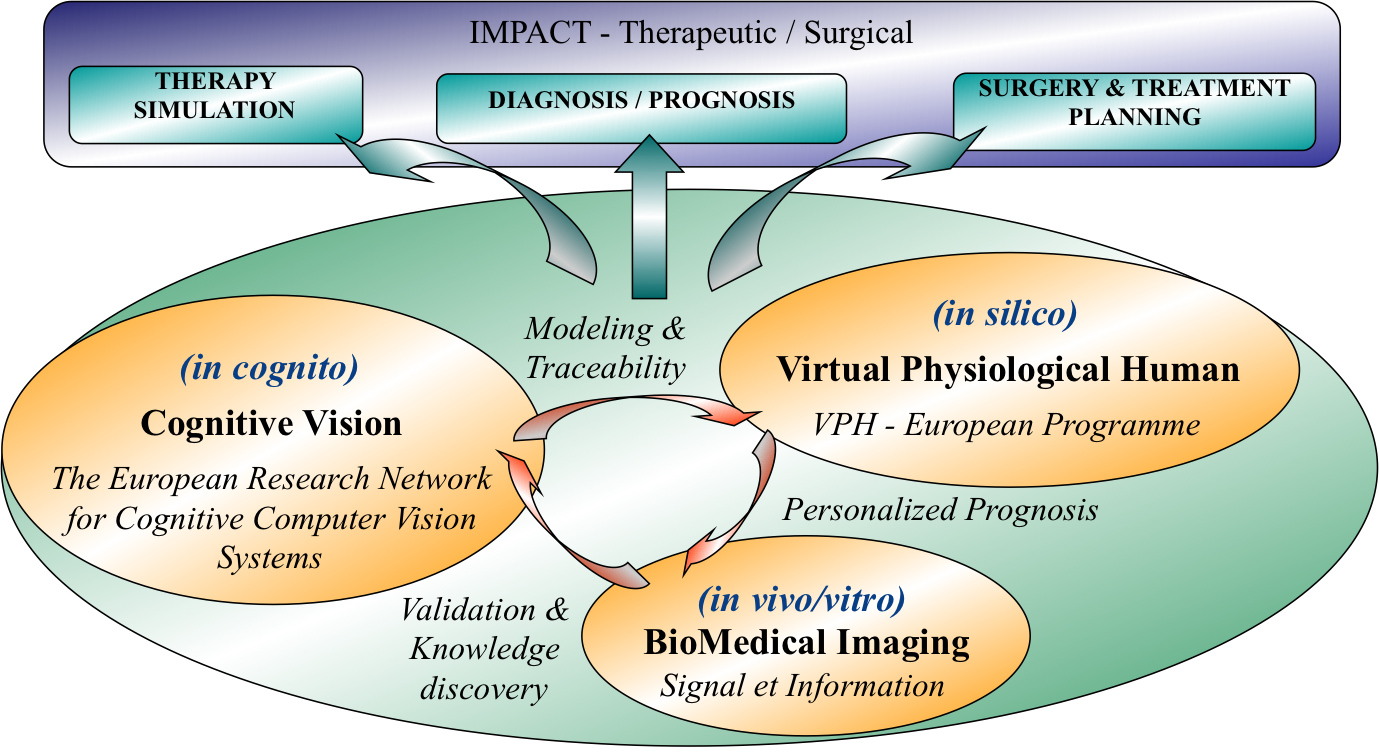Scientific challenge:
Our research is dedicated to computational pathology, spatial transcriptomcs, microscopic biomedical image analysis and pattern recognition (including machine & deep learning), by exploring responsible artificial intelligence paradigms.
We are targeting high-content biomedical image analysis, understanding and synthesis, by including explicit and implicit biomedical knowledge and by working within the context of explainable, interpretable, frugal, responsible AI when deep learning is used.
This challenge deals with a tripolar paradigm considering cognitive vision (in cognito) applied to biomedical images (in-vivo / in-vitro) in the framework of the virtual physiological human (in silico) :

In Cognito – in Silico – in Vivo / in Vitro High-Content BioMedical Image Analysis, Understanding and Synthesis.
Multiscale and multimodal biomedicalimage analysis / synthesis, as explainable / responsible artificial intelligence constitute the core competence necessary to this approach. Prognosis traceability and uncertainty management are considered as important elements enabling a constant implication of our medical partners and an effective translational approach. Integrating micro and macro modalities in the next generation of PACS and metadata management platforms, necessitates to go from the semiologic approaches towards operational morphogenetic models, by considering morphological, bio-physical and genetic aspects. This necessitates a close collaboration within multidisciplinary teams/projects.
Keywords: High-content BioMedical Image Analysis, Multimodal Fusion, Computational Pathology, Spatial Transcriptomics.
Specific objectives:
- Predicting Spatial Transcriptomics from Computational Histopathology
- Predicting Parkinson’s Disease Propagation Paths Using Diffusion MRI Biomarkers
- Stratifying Alzheimer's Disease Patients Through Morphological and Topological Characterization of Tau Pathologies in Human Brain Histology
- Multimodal Analysis (fMRI, Microbiota, Histology) to Uncover Correlations and Causal Mechanisms in Parkinson’s Disease Progression
- Discovering Correlations and Causalities from Ophthalmological Image Biomarkers (Fundus Images, OCT) Using Deep Learning
- Understanding Perception in Late Blindness Through Functional MRI Analysis and Deep Learning
- Navigation Support for Visually Impaired Individuals Using Deep Reinforcement Learning in Indoor and Outdoor Environments
PhD Supervised:PhD Supervised